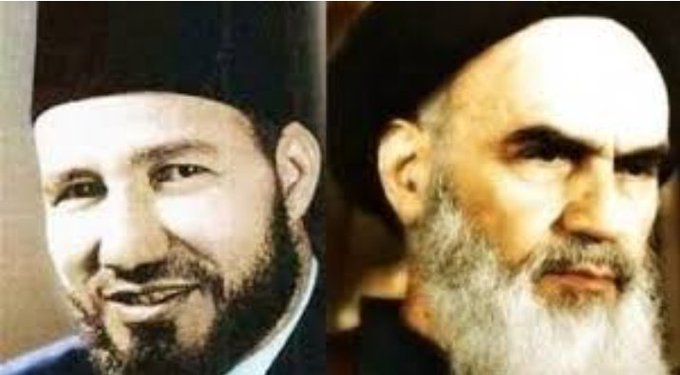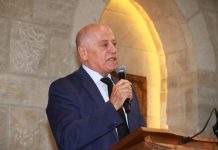Is the Concept of “Dhimmitude” Still Alive Among Sunni and Shiite Extremists?
Colonel Charbel Barakat/May 22/ 2025
أهل الذمة بين التكفيريين السنة والشيعة
الكولونيل شربل بركات/22 أيار/2025
*لن يهنأ بال لأحد في هذا الشرق طالما يحلم البعض بالتفوّق على الآخرين لإنتمائهم الديني وكأن الله لا يأبه إلا بهم.
*لنقرأ ما توصل إليه ولي العهد السعودي الأمير محمد ابن سلمان، إذ يقول بأن كل النظريات التكفيرية مرفوضة وبأنها لا تشبه المسلمين ونحن نقبل القرآن ككتاب الله ولا نقبل بالمتاجرين بالأحاديث
*هل سيتمكن الاعتدال الاسلامي من تخليص الدين الحنيف من رواسب الماضي؟
*ليوم يحاول بعض الفصائل من المقاتلين السنة في سوريا تذكير المسيحيين بدفع الجزية بينما يواجهون العلويين بتهمة مساندة الطاغية “الأسد” والدروز بتمهمة مساندتهم من قبل أخوتهم في اسرائيل.
يعيش الشرق الأوسط منذ فترة نهاية الخلافة العثمانية، وبالرغم من كل الشعارات التقدمية والنظريات الفلسفية والتفاعلات الاقتصادية وتأثير الحروب العالمية والصراعات الفكرية، إلى اليوم هاجس الطروحات الدينية التي ترتكز على العودة إلى مفاهيم انطلاقة الاسلام وانتشاره خارج الجزيرة العربية، وبالتالي فرض التمييز بين “المؤمنين” وغيرهم من الرعايا، وخاصة سكان البلاد الذين دعيوا “بأهل الذمة”، وذلك لتشجيع الملتحقين بالدين الجديد على الانضمام للقوى المحاربة، والتي تسعى لنشر السيطرة بين القبائل والشعوب مستندة إلى هذا الحافذ النفسي والمادي على السواء. وبينما اعتمد العرب الخارجين من الصحراء إلى بلاد الشام على رجال الادارة خاصة المسيحيين لبناء دولتهم، وقد كان هؤلاء أختلفوا مع جباة الأمبراطورية الذين طالبوهم بدفع المتأخر عليهم من أعباء الضرائب والرسوم فور تخلصهم من نير احتلال جيوش كسرى التي كانت نهبت خيراتهم وأرهقتهم وأذلتهم لعدة سنوات، ما دفعهم إلى تفضيل الخضوع لسيطرة فرسان الصحراء هؤلاء وهم اكتفوا بالقليل، ومساعدتهم على تنظيم دولتهم والتخلص من هيمنة الادارة الامبراطورية الكثيرة المطالب. وقد سادت نظرية حرية العمل والانتاج في مقابل التطوع بالجندية لخدمة النظام الجديد ومشاريعه التوسعية، ومن هنا كان التمييز بين من يعمل وينتج مقابل من يلتزم بالقتال لتأمين الاستقرار لهؤلاء. ولذا كان على المنتجين، الذين لا يُسألون عن أفكارهم ومعتقداتهم الدينية طالما قبلوا بحكم المسلمين، دفع “الجزية” أي المتوجب للخزانة من أجل تأمين رواتب المتطوعين للعمل في مجال الأمن والدفاع أو عمليات المهاجمة والتوسع.
هذه النظرية الاقتصادية التي سادت مع توسع الدولة في بلاد الشام بدأت تتغير ما بعد احتلال بلاد الفرس والتحاق عناصر من وسط آسيا تباعا في الدين الجديد، حيث قلت أعداد “أهل الذمة”، وهم أهل البلاد في مناطق الشام ومصر وشمال أفريقيا، بينما لم يكن هناك الكثير منهم في البلاد البعيدة صوب الشرق، ومن هنا أصبح المبدأ السائد هناك أن تُسلم أو تقتل. وهكذا توقفت الفتوحات عند مواجهة الشعوب القادرة على الدفاع عن نفسها (في الصين أو منغوليا أو الهند…) وتلخصت الدعوة بالقوة أو حدّ السيف.
الحكم الأموي كان يعتمد على العرب أكثر من بقية الأجناس، ولكن منذ التغيير الذي طرأ على الحكم مع وصول العباسيين، بدأ تأثير الشعوب الأخرى على الحكم خاصة الفرس ثم الأتراك وبالتالي على التفسيرات الدينية، فكثرت الاجتهادات، ومن هنا اللجوء إلى الأحاديث المستقاة من قصص وأخبار رويت ونقلت عن النبي والصحابة لدعم فكرة التكفير وتغليب هذه الروايات على المنطق والعلاقات الطبيعية، وحتى على النصوص القرآنية أحيانا، وتفوّق هذه الاحاديث التي تدعو إلى حق المسلمين بالسيادة على غيرهم من الشعوب لدرجة الاستعباد، فهؤلاء يعيشون تحت رحمة المسلمين “المقاتلين” ويلتزمون وحدهم دفع الجزية أو الضرائب المفروضة لحاجات الدولة.
بعد سقوط السلطنة العثمانية وانتصار الفكر العلماني المتأثر بالثورة البلشفية انتهى دور الخليفة فساد نوع من النوستالجية لدور جديد للمسلمين خاصة مع الأخوان في مصر. وبالرغم من التأثير السوفياتي وتفشي الاحزاب اليسارية تحت شعارات الوحدة العربية، بقي الحلم بالتفوق الاسلامي يلهب الجماهير إن في أحداث فلسطين أو في مواجهات لبنان، ليعود بمظهر جديد مع جماعة القاعدة التي اعتمدت ما سمي بالسلفية أو التنظيمات التكفيرية المختلفة ومنها جماعات الجزائر التي قتلت أكثر من مئتي ألف من المسلمين الآمنين هناك وتنظيم داعش الذي اعتمد القتل والتهجير في سوريا والعراق ومجموعات باكو حرام في نيجيريا وسائر بلدان أفريقيا وغيرها من التنظيمات التي تنادي بالاسلام السياسي بشقيه السني والشيعي حيث تمادت الخمينية الشيعية المتمثلة بولاية الفقيه والتي تسعى بنفس الوسائل للهيمنة والتسلط بتكفير الكل وخاصة السنة “أحفاد يزيد” ولو بطريقة مختلفة. ولكن الهدف واحد وهو تعبئة الموالين للقتال في سبيل الله وقتل الآخرين أو طردهم بينما يدفع الباقون الجزية لكي يعيشوا بحماية هؤلاء المقاتلين.
اليوم يحاول بعض الفصائل من المقاتلين السنة في سوريا تذكير المسيحيين بدفع الجزية بينما يواجهون العلويين بتهمة مساندة الطاغية “الأسد” والدروز بتمهمة مساندتهم من قبل أخوتهم في اسرائيل. ولكن هل كان الشيعة في حزب الله والفاطميون والافغان وغيرهم من التنظيمات التابعة لإيران أرحم على السنة أو على المسيحيين وبقية أهل الذمة؟ وماذا فعل شيعة جماعة حزب الله هؤلاء يوم تمكنوا من السيطرة في لبنان ولو بشكل جزئي؟ هل كانوا أرحم على البقية من اللبنانيين؟ وماذا عن دفع الجزية من قبل المسيحيين وغيرهم من المختلفين عنهم؟ ألم يتمنّعوا عن دفع الرسوم للدولة بحجة القتال وحولوا الجباية على الآخرين؟ وماذا عن الوظائف والمعاشات والاستفراد بالحكم؟ أليس هذا أيضا من قبيل جعل الكل أهل ذمة واستفرادهم هم بالامتيازات تحت شعار أنهم وحدهم “المقاومون” اي المقاتلون؟
العقلية التي لا تزال سائدة بين التكفيريين سنة وشيعة لن تتوقف ولن تتغير قبل أن يعود هؤلاء عن فجورهم ويفهموا بأن الكل مواطنون متساوون تحت القانون ولا حق لأحد بالسيطرة مهما كان دينه أو انتماءه أو تاريخه، وعليه أن يقبل بالدولة وبأحكام القانون ولا يحلم بالتمييز أو الاستعلاء، وإلا فكل ظالم سيبلى بأظلم ولن يهنأ بال لأحد في هذا الشرق طالما يحلم البعض بالتفوّق على الآخرين لإنتمائهم الديني وكأن الله لا يأبه إلا بهم.
فلنتروى قليلا ولنقرأ ما توصّل إليه ولي العهد السعودي الأمير محمد ابن سلمان، وهو سيصبح خادم الحرمين الشريفين مستقبلا، إذ يقول بأن كل النظريات التكفيرية مرفوضة وبأنها لا تشبه المسلمين ونحن نقبل القرآن ككتاب الله ولا نقبل بالمتاجرين بالأحاديث التي منها ما هو منحول أو غير دقيق ولا يخدم الاسلام بل يضر به.
فهل نتأمل بمستقبل زاهر في هذا الشرق بعد كل المعاناة؟ وهل سيتمكن الاعتدال الاسلامي من تخليص الدين الحنيف من رواسب الماضي؟ وهل تكون مدة اربعة عشر قرنا هي المعدل في حياة الأديان ليبدأ فيها نوع من النقد الذاتي؟ فقد كان القرن الخامس عشر تاريخا مهما في الكنيسة الكاثوليكية أيضا حيث تعرضت لهزة أعطتها اندفاعة جديدة رفضت خلالها الكثير من النظريات وغيرت مسارها التاريخي. وهل أن الدين اليهودي أيضا كان تعرّض لنفس الهزة في الفترة الزمنية المتقاربة نفسها والتي أعقبت تبشير الرسل وانتشارهم حول العالم المعروف؟
Is the Concept of “Dhimmitude” Still Alive Among Sunni and Shiite Extremists?
Colonel Charbel Barakat/May 22/ 2025
*Peace will never prevail in the Middle East as long as some continue to cling to dreams of religious superiority—behaving as though God favors only them.
*Let us hail the stance of Saudi Crown Prince Mohammed bin Salman (MBS), who has firmly rejected extremist ideologies, asserting that they do not represent true Islam. He upholds the Quran as the word of God and openly denounces those who manipulate the faith through fabricated or misleading Hadiths.
*Can moderate Islam truly cleanse itself of the burdens of the past?
*Today, certain Sunni militant factions in Syria are once again demanding the historical jizya tax from Christians. They accuse Alawites of supporting the tyrant Assad and denounce the Druze for their perceived ties to their brethren in Israel. Meanwhile, their Shiite counterparts wage wars of dominance under the banner of divine legitimacy, invoking religious authority to justify conquest and subjugation.
*The enduring mindset of Dhimmitude—the notion that non-Muslims are second-class subjects—continues to fuel violence, division, and persecution. Whether Sunni or Shiite, such extremism stands in direct opposition to any hope for coexistence or equality in the region.
***
Since the fall of the Ottoman Caliphate, the Middle East has remained in constant turmoil. Despite intellectual awakenings, wars, and economic transformations, one obsession endures: the religious ideology of dominance—the division of humanity into “believers” and second-class subjects, particularly the so-called “People of the Dhimma” (Dhimmitude).
This ideology traces back to the early Islamic conquests beyond the Arabian Peninsula, where discrimination was institutionalized to incentivize conversions and fuel expansionist campaigns. Those who embraced Islam joined the ranks of fighters. Those who did not were taxed and ruled.
When Arab armies reached the Levant, they relied heavily on local Christian administrators to manage their nascent state. These communities, worn down by years of Persian (Khosrau’s) oppression and heavy taxation, often welcomed the new rulers, who imposed lighter burdens and offered relative stability. In return, they paid the jizya and were allowed to continue practicing their religion. The system struck a pragmatic balance: those who worked and produced sustained those who fought to maintain order and extend the state.
But this balance began to unravel after the conquest of Persia and the spread of Islam into Central Asia. In these new territories, the Dhimmi population was minimal or nonexistent. The new rule became: convert or die. Expansion halted only when it encountered civilizations strong enough to resist—China, Mongolia, India. Conversion ceased to be a matter of belief and became an imposition by the sword.
Under the Umayyads, Arab identity reigned supreme. But with the Abbasids, Persian and later Turkish influence reshaped religious discourse. Hadiths—narratives often of dubious authenticity—began to eclipse the Quran in authority. These texts were weaponized to justify takfir (excommunication), slavery, and the permanent subjugation of non-Muslims.
Following the collapse of the Ottoman Sultanate and the rise of secular ideologies inspired by the Bolshevik Revolution, the Caliphate was abolished. Yet a new Islamic identity crisis emerged—one that groups like the Muslim Brotherhood sought to exploit. Even as Arab socialism and leftist movements rose, the dream of religious supremacy endured—manifesting in the Palestinian cause, the Lebanese Civil War, and later, more violently, in the emergence of Al-Qaeda, ISIS, Boko Haram, and their offshoots.
The pattern is unmistakable: excommunication, violence, taxation, and persecution—all under the false pretense of divine mandate. Sunni extremists invoke the purity of early Islam, while Shiite factions like Hezbollah, the Fatimids, and Iran’s Revolutionary Guard invoke the doctrine of Wilayat al-Faqih (Guardianship of the Jurist) to justify domination and warfare.
What mercy did Hezbollah show when it seized control—partially or wholly—of Lebanon? Were Sunnis, Christians, and other minorities treated as equals? Or were they burdened with taxes while Hezbollah claimed exemptions under the banner of “resistance”? Did they not monopolize jobs, pensions, and privileges, reducing others to Dhimmi-like status in their own homeland?
This extremist mindset—Sunni or Shiite—will not change until it renounces the belief in religious superiority. True peace will remain out of reach unless all accept equal citizenship under a civil law, abandon dreams of supremacy, and stop acting as though only their sect is divinely favored.
Let us reflect again on the example of Saudi Crown Prince Mohammed bin Salman (MBS), the future Custodian of the Two Holy Mosques. He openly rejects extremism, affirms the Quran as the primary source, and denounces the manipulation of Hadiths—many of which are fabricated and deeply harmful to the spirit of Islam.
So, can we still hope for a brighter future in the Middle East, after so much pain and regression?
Can moderate Islam reform itself and break free from the chains of its historical dogmas?
Does every religion, after fourteen centuries, reach a moment of reckoning—a time of deep self-reflection and reform? The Catholic Church experienced such an upheaval in its fifteenth century that reshaped its doctrine and destiny. Judaism, too, underwent transformation in the centuries following the rise of Christianity.
Perhaps Islam, now at a similar crossroads, must finally confront its own inner truth.
Colonel Charbel Barakat
***Colonel Charbel Barakat, a retired Lebanese Army officer, historian, terrorism expert, and author of numerous works on Lebanon, the Iranian regime’s schemes, and jihadist movements, has testified multiple times before the U.S. Congress on critical issues, including Iranian and Syrian terrorism, the Syrian occupation of Lebanon, jihadist threats, and the pursuit of Middle East peace.




















